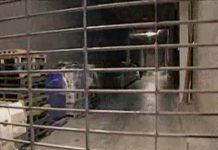The documentary “A Dry Season – The Drought of 2012” sheds light on the devastating impact of one of the most severe droughts in American history. With nearly two-thirds of the country affected, it was the driest year since 1988 and the warmest on record. The effects on agriculture, particularly on the nation’s most fertile farmland, have been catastrophic. As the world’s largest corn and soybean exporter, the drought has had global implications, with record-setting prices for these crops leading to higher costs of feeding livestock.
The documentary takes a closer look at how the drought of 2012 has affected farmers across the country. The impacts have been wide-ranging, from crop failures and reduced yields to soaring input costs and even bankruptcy for some. The documentary captures the frustration and hardship experienced by farmers who have had to face the reality of climate change and the increasing frequency of extreme weather events.
Despite the severity of the 2012 drought, the documentary also highlights some new developments in agriculture that could help soften the impact of future droughts. These include innovative irrigation systems, crop breeding programs, and regenerative farming practices. By using technology and new approaches to farming, farmers can better manage their water resources and reduce their dependence on rain-fed agriculture.
The documentary also highlights the importance of reviving some old ideas, such as crop rotation and cover cropping. These time-tested practices can help farmers build healthy soils that are better able to retain moisture and nutrients, making them more resilient to drought and other extreme weather events.
In conclusion, “A Dry Season – The Drought of 2012” is a sobering documentary that captures the devastating impact of climate change on American agriculture. It showcases the challenges faced by farmers and the urgent need to develop new strategies to mitigate the impact of future droughts. The documentary also offers hope in the form of innovative solutions and a return to some old, yet effective, agricultural practices.

































